Home>Home Appliances>Laundry Appliances>How To Clean Smell Out Of A Washing Machine
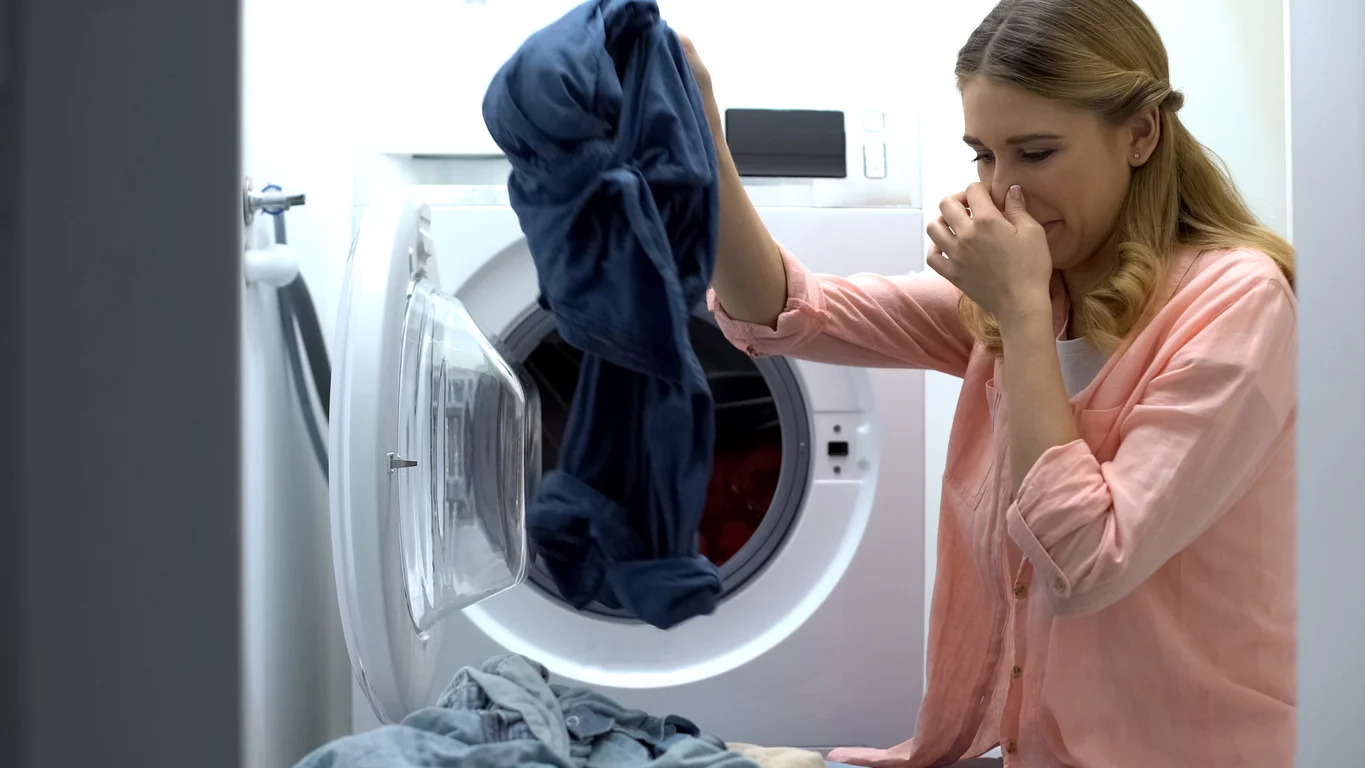

Laundry Appliances
How To Clean Smell Out Of A Washing Machine
Published: February 21, 2024
Learn effective tips to eliminate odors from your laundry appliances with our comprehensive guide on how to clean the smell out of a washing machine. Keep your laundry smelling fresh and clean!
(Many of the links in this article redirect to a specific reviewed product. Your purchase of these products through affiliate links helps to generate commission for Storables.com, at no extra cost. Learn more)
Introduction
A washing machine is an indispensable appliance in any household, simplifying the daunting task of laundry. However, over time, these trusty machines can develop an unpleasant odor that lingers on freshly washed clothes. This unwelcome smell can be attributed to a variety of factors, including the accumulation of dirt, soap scum, and moisture within the machine. Fortunately, there are effective methods to combat and prevent this issue, ensuring that your laundry emerges fresh and clean with every wash.
In this comprehensive guide, we will delve into the root causes of washing machine odors and provide practical tips for regular maintenance. Additionally, we will explore natural cleaning methods and the use of commercial cleaning products to eliminate unpleasant smells. By following these strategies, you can restore your washing machine to its pristine condition and prevent future odors from developing.
Whether you are dealing with a front-loading or top-loading washing machine, the insights and techniques shared in this guide will empower you to tackle the issue of lingering odors with confidence. Let's embark on this journey to revive your washing machine and ensure that your laundry emerges not only clean but also free from any unpleasant odors.
Key Takeaways:
- Say goodbye to washing machine odors by using natural cleaning methods like baking soda and vinegar. Regular maintenance and leaving the door ajar can prevent future smells, keeping your laundry fresh and clean.
- Use high-efficiency detergents and perform monthly maintenance cleanings to keep your washing machine odor-free. Remember to leave the door open and promptly remove clean laundry to maintain a fresh-smelling appliance.
Read more: How To Clean Washer Smell
Understanding the Cause of Smell in Washing Machines
The emergence of unpleasant odors in washing machines can be attributed to various factors, often stemming from the accumulation of dirt, soap residue, and moisture within the appliance. In front-loading machines, the rubber gasket around the door can trap moisture and detergent, providing an ideal environment for mold and mildew to thrive. Additionally, the detergent drawer and the drum itself may harbor residual soap scum and dirt, contributing to the development of unpleasant smells.
In top-loading machines, the presence of lingering moisture, particularly in the drum and around the agitator, can foster the growth of mold and mildew. Furthermore, the use of excessive detergent or fabric softener can lead to the buildup of residue, exacerbating the issue of persistent odors.
Moreover, the practice of washing at low temperatures, while energy-efficient, can contribute to the accumulation of bacteria and mold within the machine. The combination of moisture and organic matter from soiled laundry creates an environment conducive to bacterial growth, ultimately resulting in the emission of unpleasant odors during the washing process.
It is essential to recognize that neglecting regular cleaning and maintenance of the washing machine can exacerbate these issues, allowing odor-causing agents to proliferate. Furthermore, failing to leave the door or lid ajar after each use can trap moisture within the machine, providing an optimal breeding ground for mold and mildew.
By understanding the root causes of washing machine odors, you can effectively address these issues through targeted cleaning and maintenance strategies. In the following sections, we will explore practical tips for regular maintenance, natural cleaning methods, and the use of commercial cleaning products to combat and prevent unpleasant smells in washing machines.
Tips for Regular Maintenance
Regular maintenance is crucial for preventing the buildup of odor-causing agents in your washing machine. By incorporating these simple yet effective practices into your laundry routine, you can ensure that your machine remains clean and odor-free.
-
Clean the Rubber Gasket and Drum Seal: In front-loading machines, the rubber gasket around the door is prone to trapping moisture and detergent residue, providing an ideal environment for mold and mildew to develop. Regularly wipe the gasket with a damp cloth and mild detergent to remove any accumulated grime and moisture. Additionally, ensure that the drum seal is free from debris and residue to prevent the growth of odor-causing agents.
-
Run a Hot Water Cycle with Vinegar: Periodically running a hot water cycle with distilled white vinegar can effectively eliminate odor-causing bacteria and mold from the interior of the washing machine. Add two cups of vinegar to the detergent dispenser or directly into the drum and run a hot water cycle without any laundry. This simple yet potent method helps to sanitize the machine and dissolve any accumulated residue.
-
Use the Right Amount of Detergent: Overusing detergent can lead to the buildup of soap scum and residue in the machine, contributing to unpleasant odors. Follow the manufacturer's guidelines for the appropriate amount of detergent based on the load size and soil level. Using a detergent specifically formulated for high-efficiency machines can also help prevent residue buildup.
-
Clean the Detergent Drawer: The detergent drawer can harbor residual detergent and fabric softener, leading to the development of odors. Remove the drawer and clean it thoroughly with warm, soapy water to remove any accumulated residue. Ensure that it is completely dry before reinserting it into the machine.
-
Leave the Door or Lid Ajar: After completing a laundry cycle, leave the door or lid of the washing machine slightly ajar to allow air circulation and prevent the accumulation of moisture. This simple practice helps to inhibit the growth of mold and mildew within the machine.
-
Inspect and Clean the Drain Pump Filter: Front-loading machines are equipped with a drain pump filter that can become clogged with lint, debris, and foreign objects. Regularly inspect and clean the filter to ensure proper drainage and prevent the buildup of stagnant water, which can contribute to foul odors.
By incorporating these maintenance tips into your laundry routine, you can effectively combat the development of unpleasant odors in your washing machine. Consistent maintenance not only ensures a clean and fresh-smelling appliance but also prolongs the lifespan of your valuable laundry equipment.
Natural Cleaning Methods
When it comes to eliminating unpleasant odors from your washing machine, natural cleaning methods offer a safe, eco-friendly, and effective approach. These methods harness the power of common household ingredients to sanitize the machine and eradicate odor-causing agents without the use of harsh chemicals. By incorporating natural cleaning methods into your maintenance routine, you can ensure that your washing machine remains fresh and clean, enhancing the overall laundry experience.
Baking Soda:
Baking soda, also known as sodium bicarbonate, is a versatile and gentle cleaning agent that effectively neutralizes odors. To utilize this natural powerhouse, simply add one cup of baking soda directly into the drum of the washing machine. Run a hot water cycle to allow the baking soda to dissolve and penetrate the interior surfaces, effectively neutralizing odors and dissolving residue. Baking soda also acts as a gentle abrasive, aiding in the removal of stubborn grime and buildup within the machine.
Distilled White Vinegar:
Distilled white vinegar is renowned for its natural deodorizing and disinfecting properties, making it an excellent choice for cleaning washing machines. To harness the odor-eliminating power of vinegar, pour two cups of distilled white vinegar into the detergent dispenser or directly into the drum. Run a hot water cycle to allow the vinegar to penetrate and sanitize the interior surfaces, effectively combating mold, mildew, and bacteria. The acidic nature of vinegar not only neutralizes odors but also helps to dissolve mineral deposits and soap scum, leaving the machine fresh and clean.
Essential Oils:
Essential oils, such as tea tree oil or lavender oil, not only impart a pleasant fragrance but also possess natural antibacterial and antifungal properties. To infuse your washing machine with a refreshing scent while combating odor-causing agents, add a few drops of your preferred essential oil to a damp cloth and wipe the rubber gasket, drum, and detergent drawer. Additionally, you can add a few drops of essential oil to a small piece of fabric and toss it into the machine during a hot water cycle to impart a subtle fragrance to your laundry.
By incorporating these natural cleaning methods into your maintenance routine, you can effectively combat and prevent unpleasant odors in your washing machine. These gentle yet potent natural agents not only eliminate odors but also contribute to a clean, fresh, and eco-friendly laundry environment. Embracing natural cleaning methods empowers you to maintain a pristine washing machine without compromising on safety or environmental impact.
Using Commercial Cleaning Products
In addition to natural cleaning methods, commercial cleaning products specifically formulated for washing machines can provide a powerful solution for combating persistent odors. These products are designed to effectively sanitize the interior of the machine, dissolve residue, and eliminate odor-causing bacteria and mold. When selecting a commercial cleaning product for your washing machine, it is essential to choose a high-quality, washer-safe cleaner that targets the root causes of odors while ensuring the longevity of your appliance.
Commercial washing machine cleaners often come in the form of powder, liquid, or tablet formulations, each offering unique benefits for thorough cleaning. These products typically contain potent cleaning agents, such as oxygen bleach, enzymes, and surfactants, which work synergistically to break down and remove stubborn residue and organic matter from the interior surfaces of the machine. Additionally, many commercial cleaners feature antibacterial and antifungal properties, effectively eradicating odor-causing agents and preventing their resurgence.
To use a commercial cleaning product, simply follow the manufacturer's instructions provided on the packaging. In most cases, the cleaning product is added to the detergent dispenser or directly into the drum, and a hot water cycle is run to allow the cleaner to penetrate and sanitize the interior of the machine. Some products may require a specific soaking or cleaning cycle to ensure thorough sanitation and odor elimination.
It is important to note that not all commercial cleaning products are suitable for all washing machine models. Therefore, it is crucial to verify that the chosen cleaner is compatible with your specific machine and follow the manufacturer's guidelines to avoid any potential damage. Additionally, some commercial cleaners are designed for specific types of washing machines, such as high-efficiency (HE) models, and may offer enhanced compatibility and performance for targeted cleaning.
By incorporating commercial cleaning products into your maintenance routine, you can effectively address persistent odors and ensure that your washing machine remains clean, fresh-smelling, and free from the lingering effects of mold, mildew, and bacteria. These specialized cleaners offer a convenient and potent solution for maintaining the hygiene and performance of your valuable laundry appliance, ultimately enhancing the quality of your laundry experience.
In summary, the use of commercial cleaning products provides a targeted and potent approach to combat persistent odors in washing machines, ensuring that your appliance remains clean, fresh, and free from odor-causing agents. By selecting a high-quality cleaner and following the manufacturer's instructions, you can effectively restore your washing machine to its pristine condition and enjoy the benefits of clean, odor-free laundry.
Preventing Future Smells
Preventing future smells in your washing machine is essential for maintaining a clean and odor-free laundry environment. By implementing proactive measures and incorporating simple yet effective practices into your laundry routine, you can mitigate the risk of odor recurrence and ensure that your washing machine remains fresh and hygienic.
Use High-Efficiency Detergents
Opt for high-efficiency (HE) detergents specifically formulated for modern washing machines. These detergents are designed to produce minimal suds, preventing the buildup of residue and soap scum within the machine. Additionally, HE detergents are formulated to effectively clean and sanitize laundry at lower water temperatures, contributing to energy efficiency while minimizing the risk of odor development.
Regularly Clean the Detergent Drawer and Dispenser
Maintain the cleanliness of the detergent drawer and dispenser by routinely removing and cleaning them with warm, soapy water. This practice prevents the accumulation of residual detergent and fabric softener, which can contribute to the development of unpleasant odors. Ensure that the compartments are thoroughly dry before reinserting them into the machine.
Perform Monthly Maintenance Cleanings
Schedule monthly maintenance cleanings to proactively combat the buildup of odor-causing agents. Utilize natural cleaning methods, such as baking soda and distilled white vinegar, to sanitize the interior of the washing machine. Running a hot water cycle with these natural agents helps dissolve residue and neutralize odors, contributing to a consistently clean and fresh-smelling appliance.
Leave the Door or Lid Ajar After Each Use
After completing a laundry cycle, leave the door or lid of the washing machine slightly ajar to allow air circulation and prevent the accumulation of moisture. This simple practice inhibits the growth of mold and mildew within the machine, reducing the likelihood of persistent odors.
Promptly Remove Cleaned Laundry
Promptly remove clean laundry from the washing machine after each cycle to prevent damp clothes from lingering in the drum. Allowing damp laundry to sit in the machine can contribute to the buildup of moisture and the development of musty odors. Transfer the laundry to the dryer or drying rack promptly to maintain freshness.
By incorporating these preventive measures into your laundry routine, you can effectively minimize the risk of future smells in your washing machine. Consistent maintenance, the use of appropriate detergents, and proactive cleaning practices contribute to a clean, fresh, and odor-free laundry experience, ensuring that your valuable appliance remains in optimal condition for years to come.
Frequently Asked Questions about How To Clean Smell Out Of A Washing Machine
Was this page helpful?
At Storables.com, we guarantee accurate and reliable information. Our content, validated by Expert Board Contributors, is crafted following stringent Editorial Policies. We're committed to providing you with well-researched, expert-backed insights for all your informational needs.
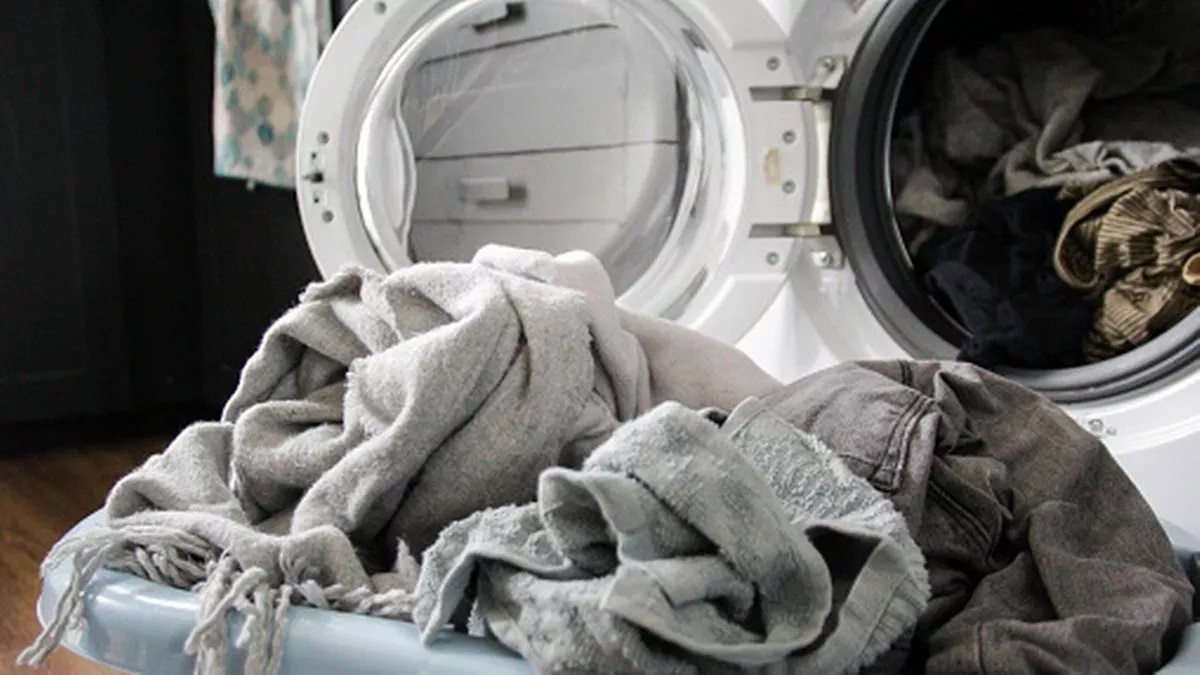


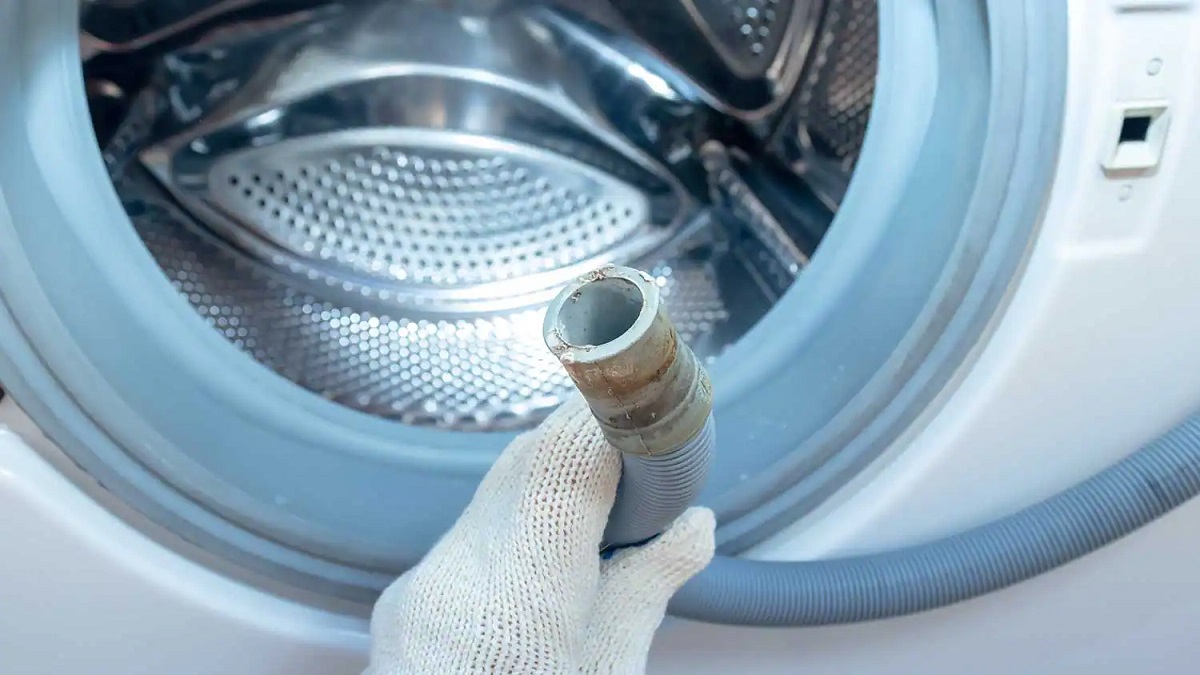
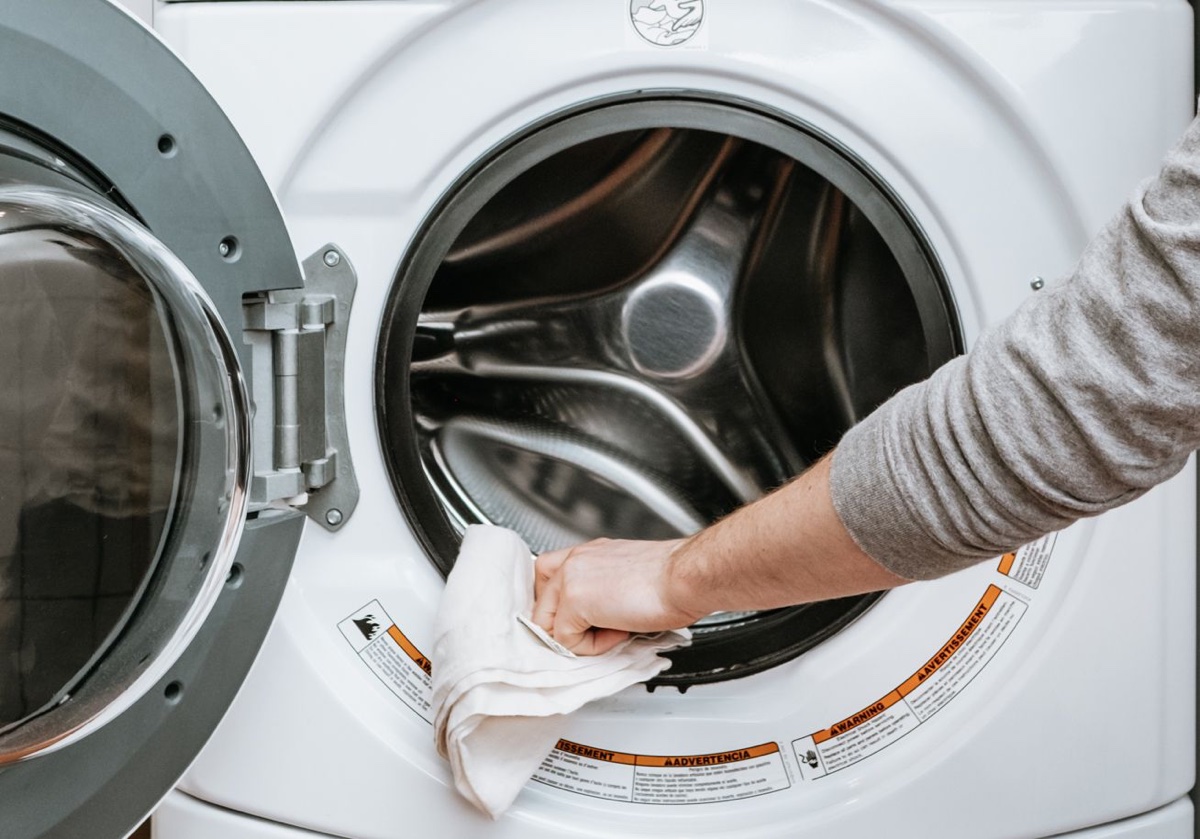
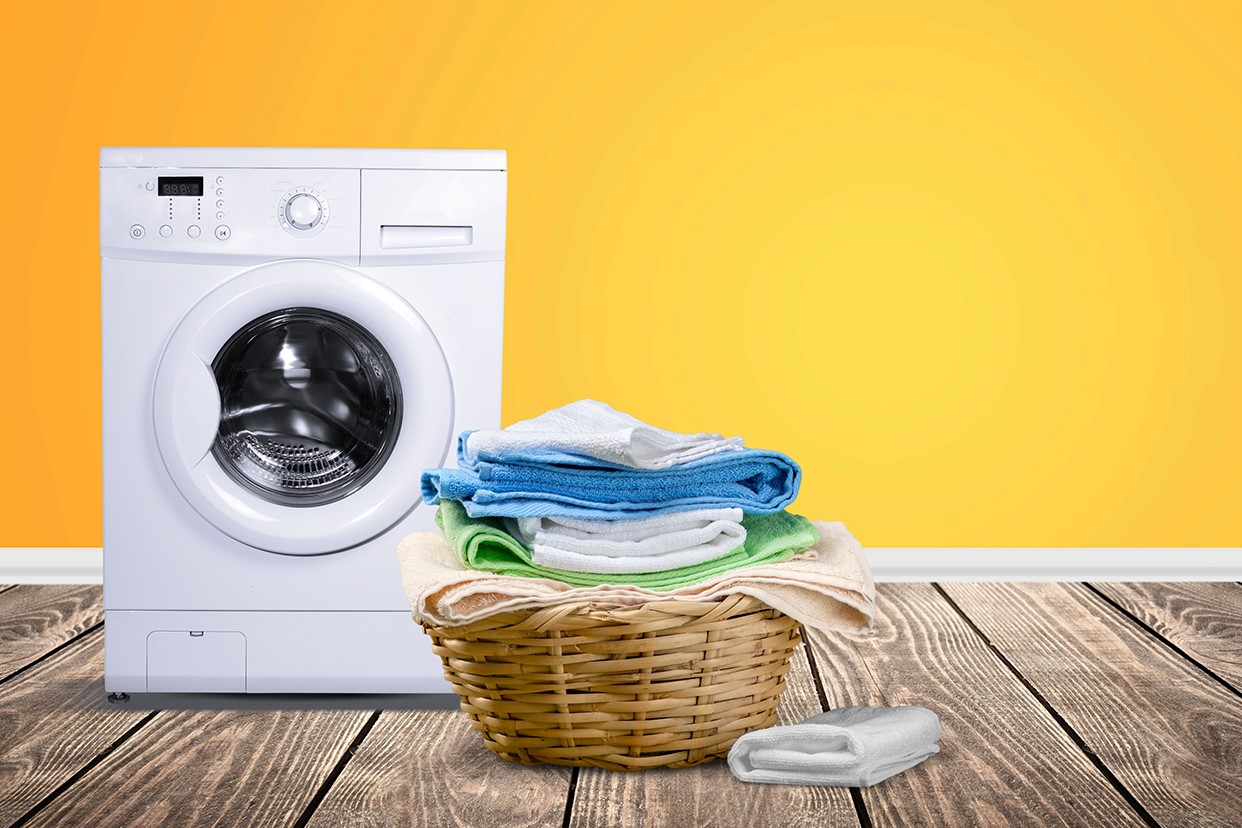
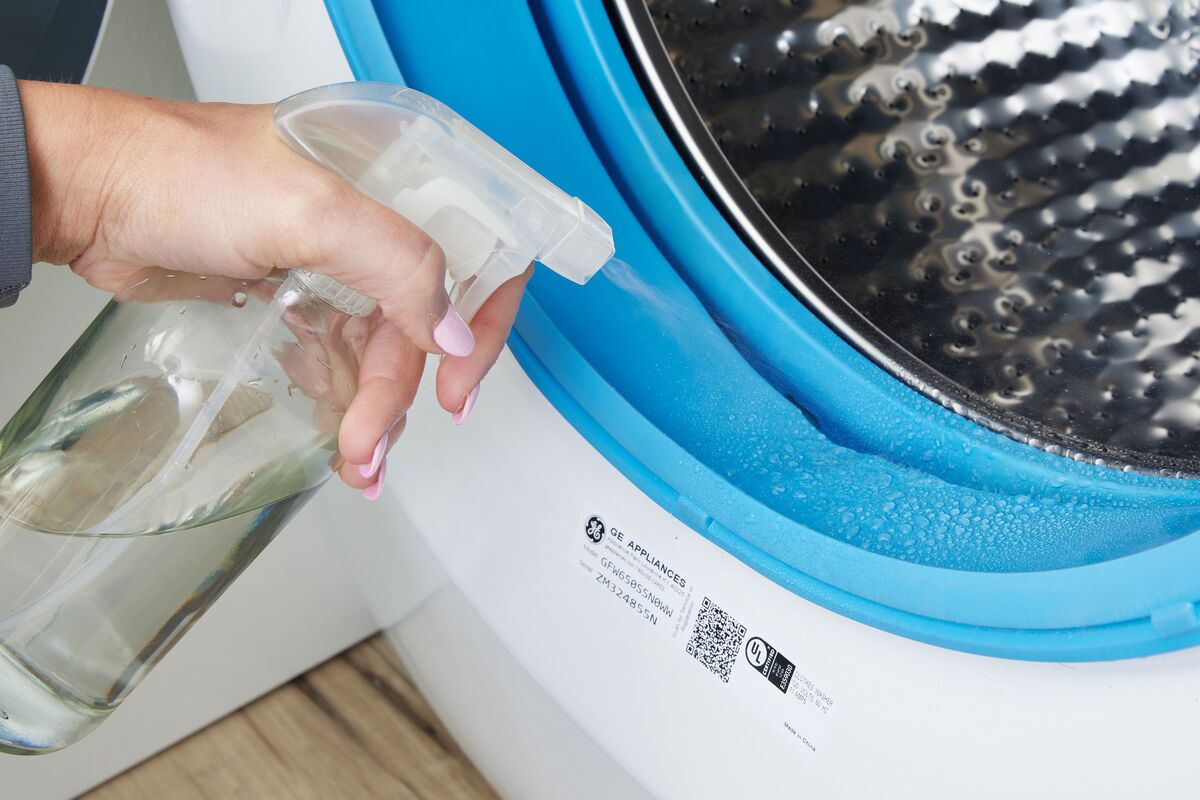

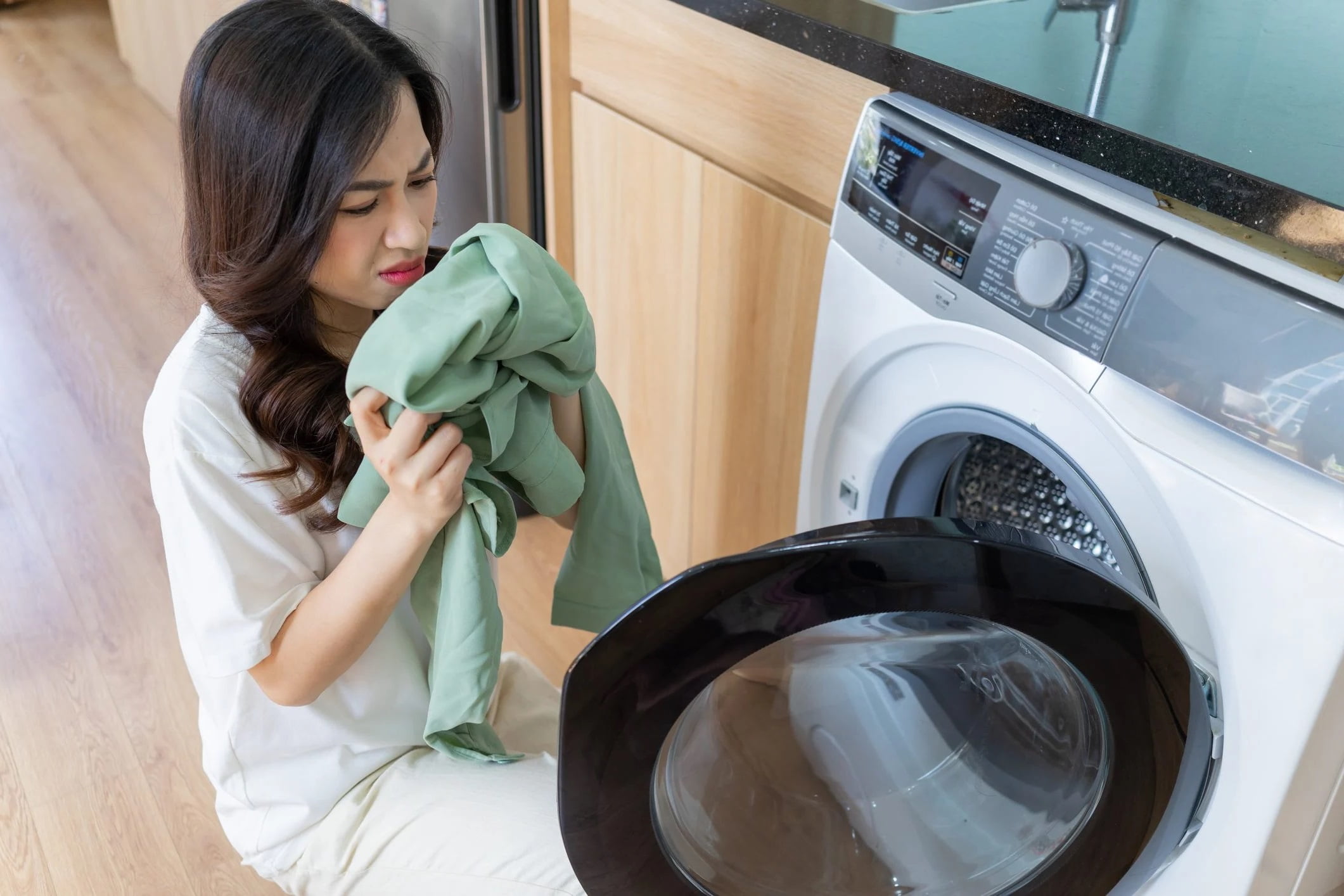
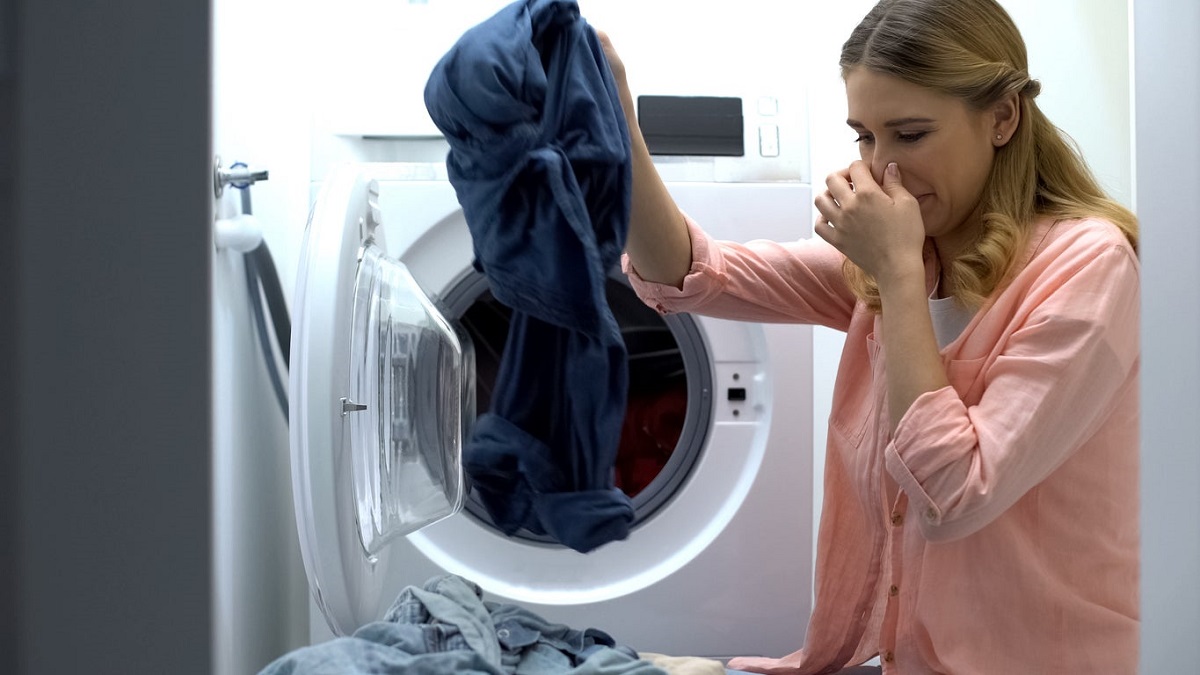

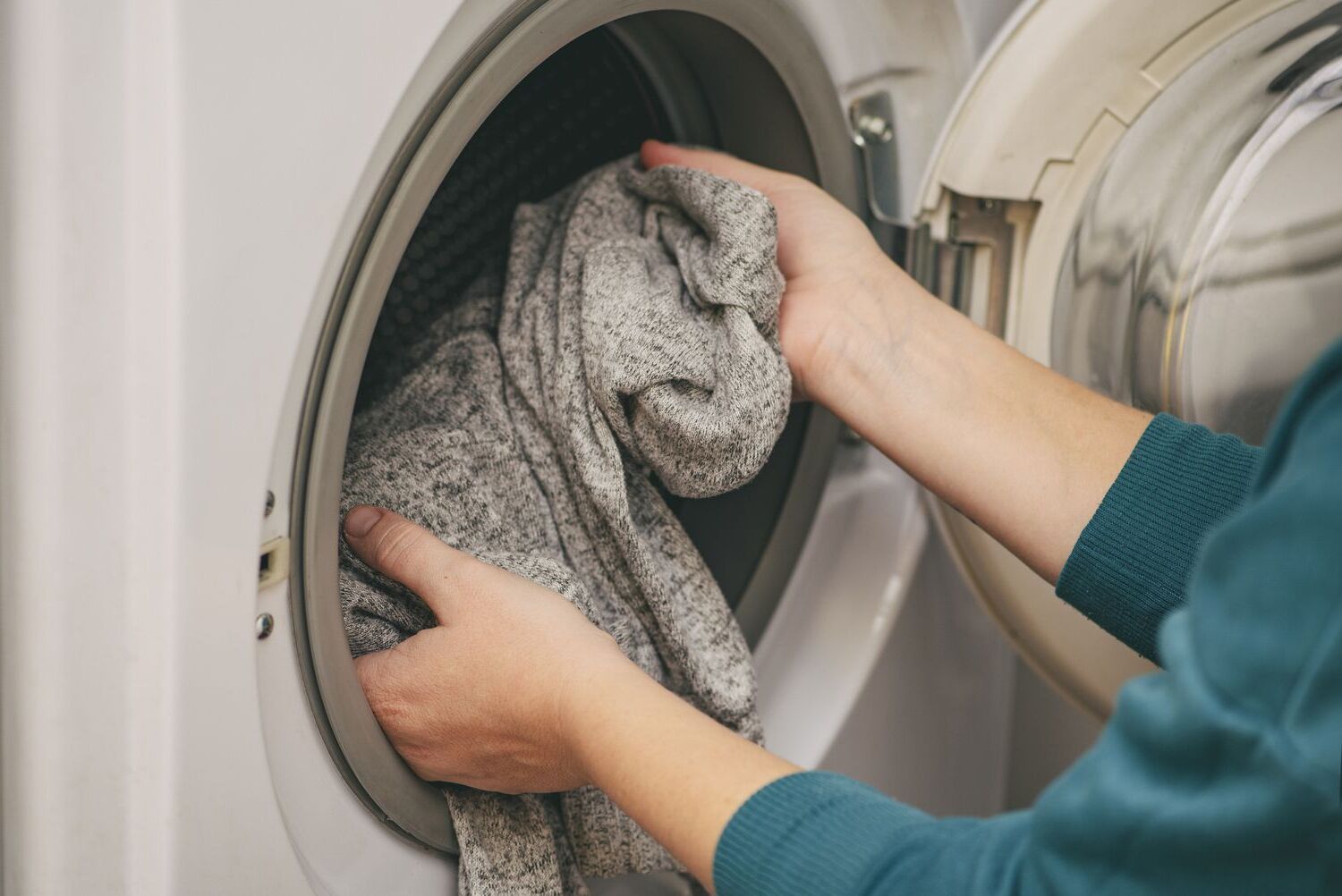

0 thoughts on “How To Clean Smell Out Of A Washing Machine”